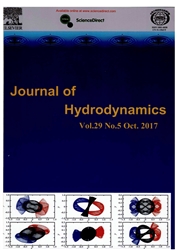

 中文摘要:
中文摘要:
The future generation networks or 4G networks constitute of varied technologies converged over the Internet protocol version 6(IPv6) core. The 4G networks offer varied services over different interfaces to the user nodes. Mobility management in 4G networks is an issue that exists. The handover protocols for mobility management in 4G networks that currently exist, do not consider wireless signal degradation during handover operations. This paper introduces the Noise Resilient Reduced Registration Time Care of Mobile IP(NR RRTC:MIP) protocol for handover management. A handover decision algorithm based on the signal strength measured by the user nodes is considered in the NR RRTC: MIP protocol. A simulation study is discussed in the paper to evaluate the performance of the NR RRTC: MIP protocol. The results obtained from the simulation study prove that the NR RRTC: MIP protocol effectively reduces handover latencies and improves network performance.
 英文摘要:
英文摘要:
The future generation networks or 4G networks constitute of varied technologies converged over the Internet protocol version 6(IPv6) core. The 4G networks offer varied services over different interfaces to the user nodes. Mobility management in 4G networks is an issue that exists. The handover protocols for mobility management in 4G networks that currently exist, do not consider wireless signal degradation during handover operations. This paper introduces the Noise Resilient Reduced Registration Time Care of Mobile IP(NR RRTC:MIP) protocol for handover management. A handover decision algorithm based on the signal strength measured by the user nodes is considered in the NR RRTC: MIP protocol. A simulation study is discussed in the paper to evaluate the performance of the NR RRTC: MIP protocol. The results obtained from the simulation study prove that the NR RRTC: MIP protocol effectively reduces handover latencies and improves network performance.
 同期刊论文项目
同期刊论文项目
 同项目期刊论文
同项目期刊论文
 期刊信息
期刊信息
